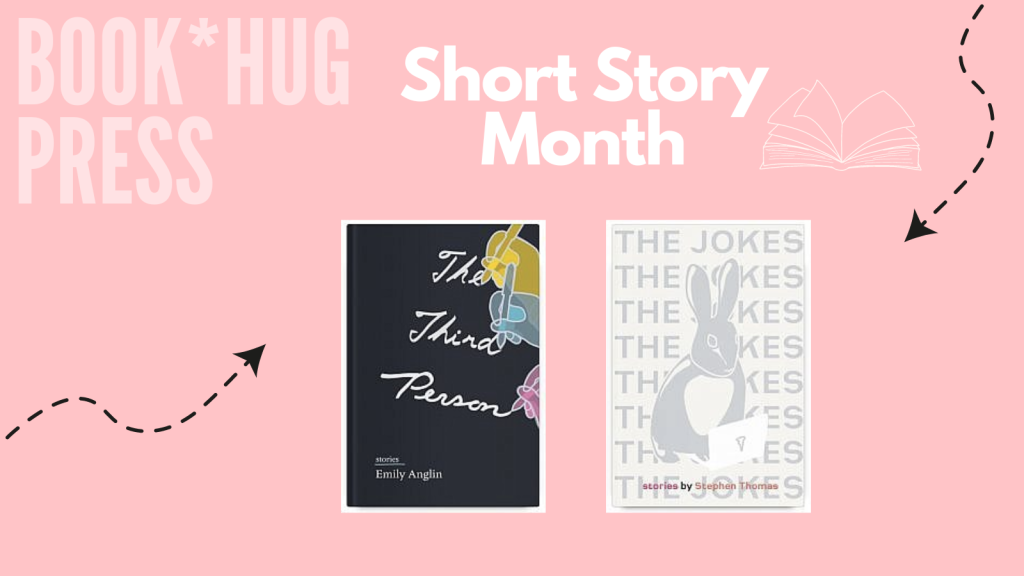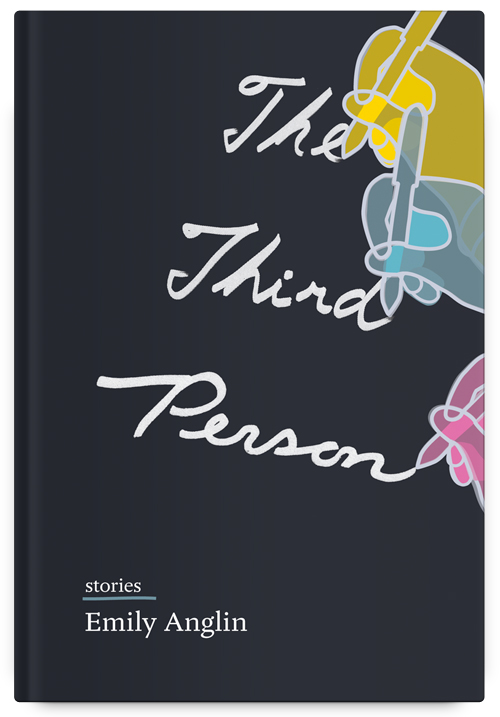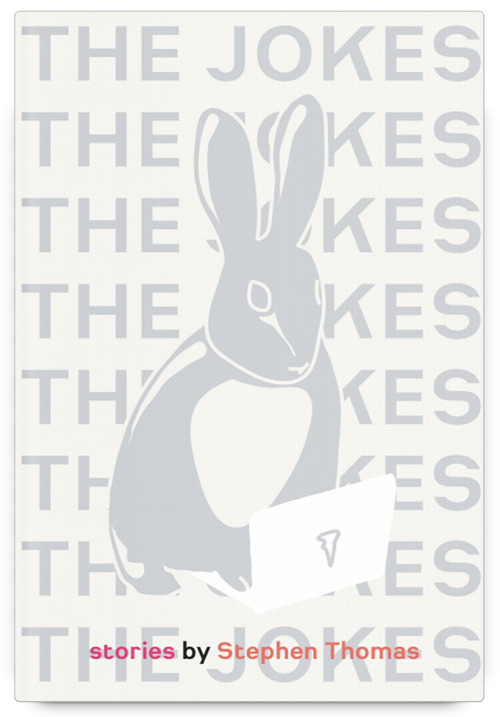Short Story Month: Second Glance

Our Short Story Month series continues by celebrating those stories that make us think twice about what we’ve read – those stories that sit marinating in our minds, and like a fine wine, open up more with time. The Third Person by Emily Anglin, and The Jokes by Stephen Thomas, are collections that contain exactly those sorts of stories. Anglin and Thomas put us under the microscope and ask us to see the bigger picture. It will come into focus, if you look closely enough.
Read these collections if you are open-minded, have a fun sense of humour, are drawn to the weird or unsettling, and believe the devil is in the details.

The Third Person by Emily Anglin
In The Third Person, a collection of uncanny short stories by Emily Anglin, a sequence of tense professional and personal negotiations between two people is complicated when a third person arrives. Within these triangulated microworlds, disorienting gaps open up between words and reality: employees dissolve from job titles, neighbours overstep comfortable boundaries, voices distanced by space or time make their presence felt. Uneasiness builds among these separate but entangled lives.
Anglin’s darkly humorous stories contemplate situations in which characters refashion themselves to fit a new competitive milieu. The Third Person reveals how people can become complicit in these milieus, even desire them, often while being led into the loneliness they can instill.

The Jokes by Stephen Thomas
Like a series of moments in a social media–like ‘feed,’ this collection of very short stories riffs on the form of ‘the joke,’ but as this might be understood by the best culture-critical comedians of our time: Andy Kaufman, Stephen Wright, Jon Stewart, Richard Pryor. Much like those stand-up artists who sanctified the joke-form, these stories deal with intense subjects, yet with a kind of SSRI-like placidity that allows readers to cling to each word as the narratives unfold.
Sad and funny, hopeful and ecstatic, nostalgic and cerebral, the vignettes in The Jokes offer a very personal, yet amazingly relatable entry-point into some of the big ideas that trouble our times—gender identity, sexuality, life and death, and ways of being in the world.

